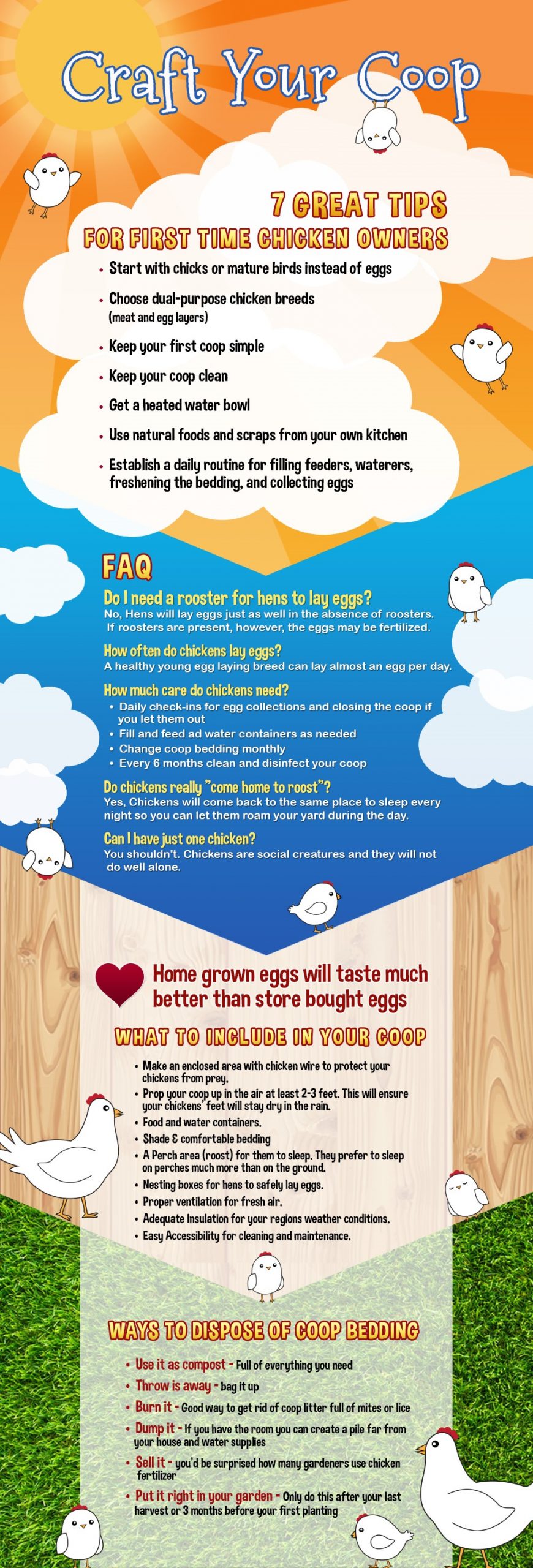7 Great Tips For First Time Chicken Owners
- Start with chicks or mature birds instead of eggs
- Choose dual-purpose chicken breeds (meat and egg layers)
- Keep your first coop simple
- Keep your coop clean
- Get a heated water bowl
- Use natural foods and scraps from your own kitchen
- Establish a daily routine for filling feeders, waterers, freshening the bedding, and collecting eggs
Quick FAQs
Do I need a rooster for hens to lay eggs?
No, Hens will lay eggs just as well in the absence of roosters. If roosters are present, however, the eggs may be fertilized.
How often do chickens lay eggs?
A healthy young egg laying breed can lay almost an egg per day.
How much care do chickens need?
- Daily “chick-ens”(check-ins) for egg collections and closing the coop if you let them out
- Fill and feed ad water containers as needed
- Change coop bedding monthly
- Every 6 months clean and disinfect your coop
Do chickens really “come home to roost”?
Yes, Chickens will come back to the same place to sleep every night so you can let them roam your yard during the day.
Can I have just one chicken?
No, you shouldn’t. Chickens are social creatures and they will not do well alone.
For the full list of FAQs, see here.
Home grown egg taste much better than store bought eggs.
What To Include In Your Coop:
-
-
-
-
- Make an enclosed area with chicken wire to protect your chickens from prey
- Prop your coop up in the air at least 2-3 feet. This will ensure your chickens’ feet will stay dry in the rain.
- Food and water containers.
- Shade and comfortable bedding
- A Perch area (roost) for them to sleep. The prefer to sleep on perches much more than on the ground.
- Nesting boxes for hens to safely lay eggs.
- Proper ventilation for fresh air.
- Adequate insulation for your regions weather conditions.
- Easy Accessibility for cleaning and maintenance.
-
-
-
Ways To Dispose Of Coop Bedding:
-
- Sell it – you’d be surprised how many gardeners use chicken fertilizer
- Use it as compost – It’s FULL of everything you need
- Put it directly in your garden – Only do this after your last harvest or 3 months before your first planting
- Burn it – Good way to get rid of coop litter that is full of mites or lice
- Dump it – Let nature have it. If you have the room you can create a pile far from your house and water supplies. It will naturally “cold” compost with time.
- Throw it away – bag it up (It’s a waste of waste, so not the best option but we aren’t judging.)

